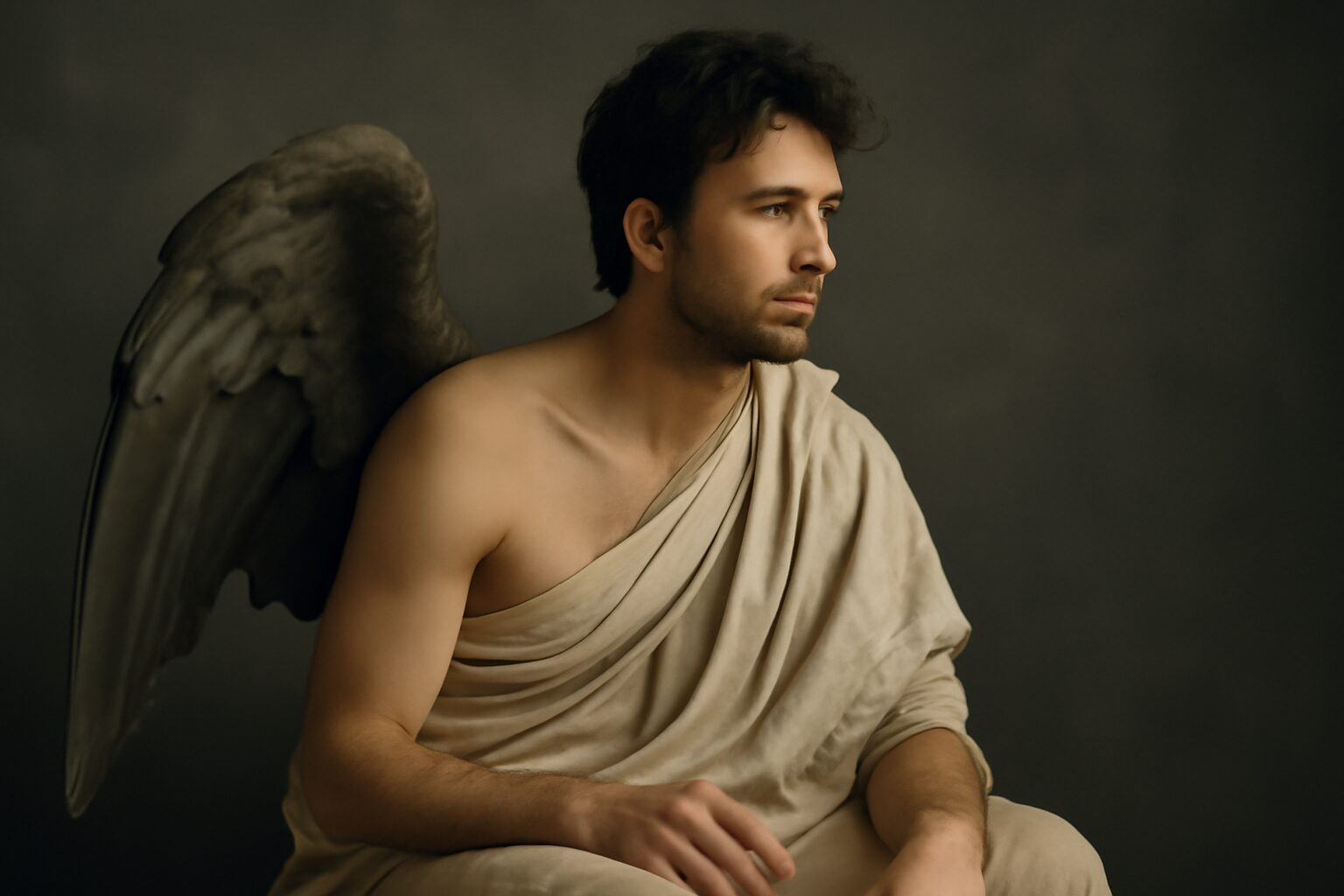Phantasos: The God of Dream Illusions
In Greek mythology, Phantasos was one of the Oneiroi, the gods of dreams who dwelled in the underworld near the realm of Hypnos, the personification of sleep. As the son of Hypnos and the brother of Morpheus and Phobetor, Phantasos played a unique role in shaping human dreams—specifically those involving inanimate objects, illusions, and surreal landscapes.
Powers and Abilities
Unlike his brother Morpheus, who took human forms in dreams, or Phobetor, who manifested as animals, Phantasos specialized in crafting illusory environments. He could conjure dreams of shifting terrains, floating cities, or impossible structures—anything that defied reality. His name, derived from the Greek word phantasia (meaning "imagination" or "apparition"), reflects his domain over the unreal and fantastical.
Phantasos worked alongside his siblings under the command of Hypnos, sending dreams to mortals through one of two gates: ivory (for deceptive or false dreams) or horn (for prophetic ones). His illusions often carried symbolic meanings, sometimes sent by the gods to convey hidden messages or warnings.
Role in Mythology
Though not as prominently featured as Morpheus, Phantasos appears in Ovid's Metamorphoses, where he and his brothers are described as winged spirits flitting silently into the minds of sleepers. His influence was subtle but profound—dreams of crumbling towers, endless labyrinths, or talking statues were often attributed to him.
Unlike nightmares, which were the domain of darker spirits, Phantasos' creations were more neutral—sometimes bewildering, sometimes awe-inspiring. Ancient Greeks believed that understanding these dreams required interpretation, as they could hold omens or divine insights.
Legacy and Significance
Phantasos represents the boundary between reality and imagination, embodying humanity's fascination with the surreal. His myths highlight the Greeks' belief in dreams as a bridge between mortal minds and the divine. While less celebrated than other Oneiroi, his role was crucial in shaping the dreamscape—a reminder that not all visions are meant to be taken at face value.
Today, his name lives on in words like "phantasm" and "fantasy," a testament to the enduring power of dreams to captivate and mystify.
Alternative Names for Phantasos
God Name: Phantasus (Roman)
Phantasus is the Roman equivalent of the Greek god Phantasos. In Roman mythology, he is one of the sons of Somnus (the Roman counterpart of Hypnos) and is associated with dreams, particularly those involving inanimate objects and surreal imagery.
God Name: u03a6u03acu03bdu03c4u03b1u03c3u03bfu03c2 (Greek)
This is the original Greek name of the god, transliterated as 'Phantasos'. He is one of the Oneiroi (dream spirits) and the son of Hypnos (Sleep). Phantasos specializes in crafting dreams about fantastical or illusory things.
God Name: Oneiros (Greek Mythology (Alternative Title))
While 'Oneiros' is a general term for dream spirits in Greek mythology, Phantasos is sometimes referred to as one of the Oneiroi. This name highlights his role among the collective dream deities who deliver dreams to mortals.
Tales about Phantasos
Phantasos and Hypnos: The Dreamweaver's Apprentice
In the shadowy realm of dreams, Phantasos served under his father, Hypnos, the god of sleep. Tasked with crafting dreams of inanimate objects and surreal landscapes, Phantasos honed his skills by weaving illusions of towering mountains that whispered secrets and rivers that flowed with starlight. One night, Hypnos challenged him to create a dream so vivid it would blur the line between reality and fantasy for a weary mortal king. Phantasos crafted a vision of a labyrinthine palace made of clouds, where every door opened to a memory and every window reflected a desire. The king awoke with a renewed sense of wonder, and Hypnos praised his son’s artistry, declaring him a master of ethereal dreams.
The Colors of Illusion
To celebrate, Phantasos painted the dream realm with hues borrowed from dusk and dawn, earning him the title "Weaver of Fantasies."
Phantasos and Morpheus: The Brothers' Contest
Phantasos often collaborated with his brother Morpheus, the shaper of human forms in dreams. While Morpheus specialized in mimicking people, Phantasos excelled in crafting environments and abstract visions. They once engaged in a friendly contest to see who could deliver the most impactful dream to a lonely poet. Morpheus appeared as the poet’s lost love, offering comfort, but Phantasos surrounded them with a garden where flowers bloomed into verses and trees hummed forgotten melodies. The poet awoke inspired, penning an epic that echoed Phantasos’s dreamscape. Though both dreams were profound, the poet credited Phantasos for unlocking his creativity, solidifying the god’s role as the muse of imaginative realms.
A Legacy of Inspiration
From that day, artists and dreamers invoked Phantasos for visions beyond the ordinary, seeking his touch to color their minds with possibilities.
Frequently Asked Questions
Who is Phantasos in Greek mythology?
Phantasos is one of the Oneiroi, the spirits or daimones of dreams in Greek mythology. He is specifically associated with creating deceptive or fantastical dreams, often appearing in the form of inanimate objects like rocks, water, or trees.
What is the role of Phantasos among the Oneiroi?
Phantasos specializes in crafting dreams that involve illusions and surreal imagery, unlike his siblings Morpheus (who shapes human forms in dreams) and Phobetor (who creates animal forms). His dreams often blur the line between reality and fantasy.
Why is Phantasos important in Greek mythology?
Phantasos represents the mysterious and unpredictable nature of dreams. His role highlights how the ancient Greeks understood dreams as messages or illusions, sometimes sent by gods to communicate hidden truths or test mortals.
How does the concept of Phantasos apply today?
Phantasos symbolizes the creative and sometimes deceptive power of the subconscious mind. Modern psychology and art often explore similar themes, showing how dreams can inspire ideas or reveal deeper emotions, much like Phantasos' illusions.
Are there any myths or stories featuring Phantasos?
While Phantasos isn't the central figure in major myths, he appears in references alongside the Oneiroi, such as in Ovid's 'Metamorphoses,' where they serve under Hypnos (Sleep) to deliver dreams to humans and gods alike.













